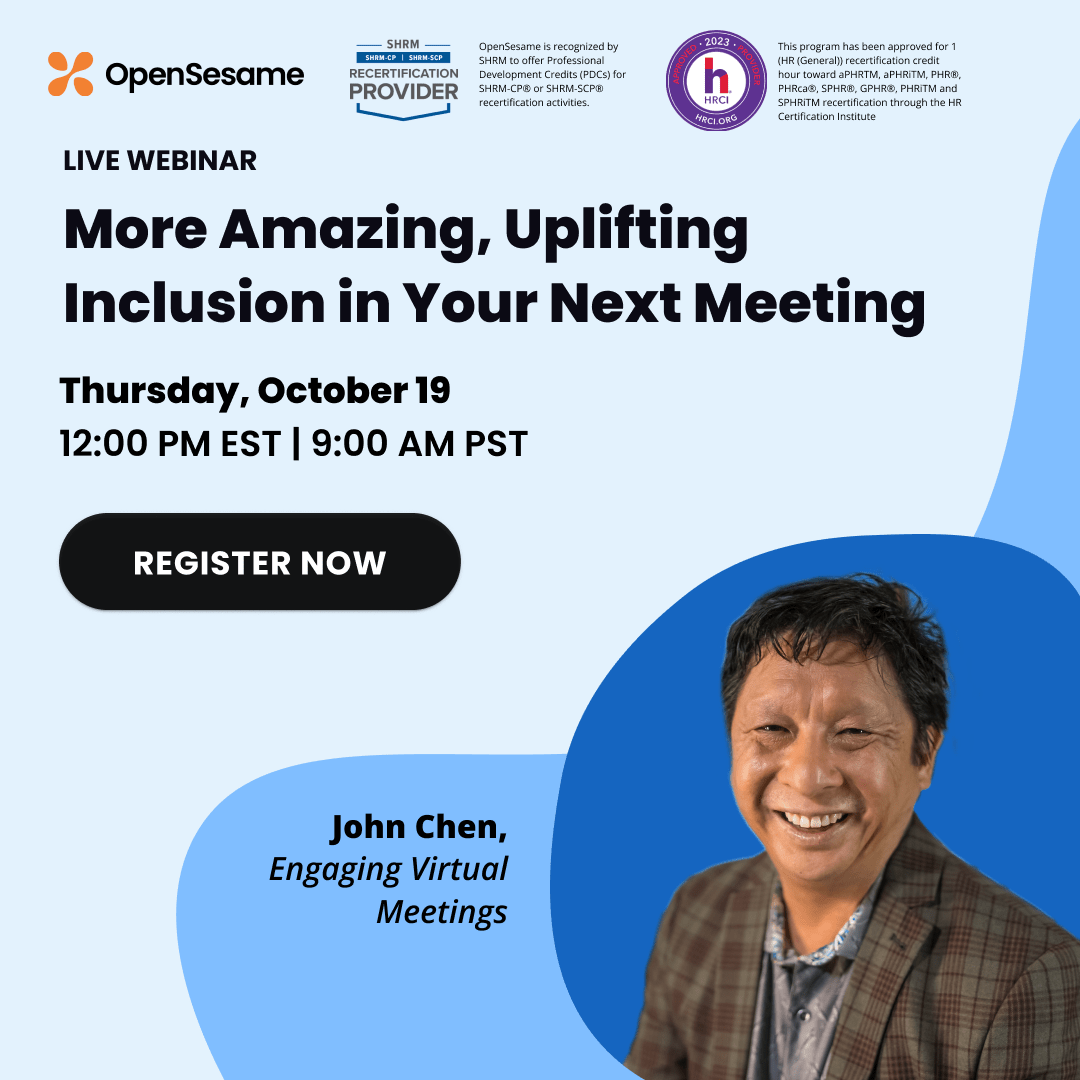Neurodiversity at Work | Samantha Friedman, ServiceSkills
Everyone deserves to have a happy, healthy and supportive working environment. Read more about supporting neurodivergent employees from Samantha Friedman, Neurodiversity Consultant, at ServiceSkills, an OpenSesame Plus Publisher.
In recent years, there’s been a clear shift in focus to promoting wellbeing and diversity in the workplace. And while progress has certainly been made on both fronts, one type of diversity is often forgotten: neurodiversity. Neurodiversity is the idea that our brains function in a wide variety of different ways. Some people identify as neurodivergent; this means that their brain functions in a way that is different than what society typically deems to be ‘normal.’ Some examples of types of neurodivergence include autism, attention deficit hyperactivity disorder, Tourette syndrome and obsessive compulsive disorder, amongst many others. Differences in functioning, thinking, or communication should never be viewed as negatives.
Whether you’re aware of it or not, you’re surrounded by neurodiversity at work (and in life) every day. In addition to a lack of knowledge about the many ways our brains can function, many people don’t consider how unsupportive workplaces can have drastic negative impacts on the wellbeing of neurodivergent people. By providing education around the importance of neurodiversity in organisations and best practice suggestions for supporting neurodivergent people, workplaces can ensure their neurodivergent employees are thriving. Everyone deserves to have a happy, healthy and supportive working environment – and the entire team benefits from everyone feeling and working their best.
When a group of neurodivergent adults were asked what they wished their employers knew about employing neurodivergent people, several responses appeared repeatedly. According to this group, the first step in supporting neurodivergent employees is to learn about small changes that all team members can make that will ensure the workplace environment is accessible and approachable for all. These include simple suggestions such as avoiding unnecessary repetitive or loud noises, minimising smells and asking others how best to communicate information to them. Additionally, it’s important to understand that individuals will have differing needs as far as working environments go. Hot desking, which has become very popular in recent years, can be helpful for those who love to work dynamically and really difficult for those who like consistency. Of course, the best way to learn about someone’s needs and preferences is to respectfully ask them.
The world of employment can be a chaotic and confusing place for neurodivergent people. By increasing knowledge of neurodiversity as well as how to best support neurodivergent employees, the workplace experience can become less stressful and, in turn, more approachable, productive and positive for all.
To learn more about supporting neurodivergent employees, check out the engaging and informative ServiceSkills series, “Neurodiversity at Work”, available in the OpenSesame catalog and OpenSesame Plus subscription.
About the Author:
Samantha Friedman is a PhD candidate at the University of Cambridge in the UK. Her research focuses on the use of nature to support wellbeing in autistic people. Samantha holds a BA in Special Education from Elon University and a Masters in Autism from the University of Strathclyde, funded by a Fulbright grant. Samantha writes about and studies topics related to neurodiversity, including reducing stigma and promoting wellbeing. She works with ServiceSkills to produce content about supporting neurodivergent employees.
About ServiceSkills:
ServiceSkills offers the premier collection of customer service, team building, mentoring and respectful workplace training courses. ServiceSkills’ 300+ courses address the full spectrum of customer service, email etiquette, internal customer service, conflict resolution, mentoring and team building training. Additional topics include diversity, bullying, harassment and ethics. These micro learning courses offer diverse presentation styles ranging from subject matter expert, roundtable discussion, animation, and wrong-way/right-way vignettes.
The post Neurodiversity at Work | Samantha Friedman, ServiceSkills appeared first on OpenSesame.





